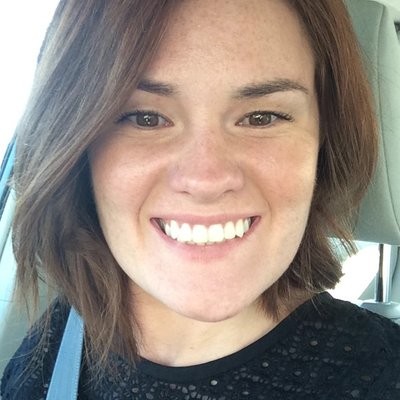Patrick Riley and Alaina Moore, the husband-and-wife duo behind Denver band Tennis, have just finished writing and producing their fifth album, Yours Conditionally, under their brand-new label. A booker for Coachella heard a single from the new record and asked Tennis to play the giant music festival in April.
But on a chilly day in late January, Riley and Moore are preoccupied not with the commercial success of Yours — which drops March 10 — or whether their Coachella set will get good publicity. On this day, Riley is concerned that an old co-worker won’t remember him.
Before he was a guitar player in a successful indie-pop band, Riley parked cars overnight at the Brown Palace while he was a student at the University of Colorado Denver. Maybe it was the weird hours they shared or the plush hotel’s endlessly exciting drama that they witnessed together, but Riley feels especially connected to his former co-workers, one of whom — a gregarious man named LeRoy — he swears will be at the Palace when we visit.
Sure enough, waving down cabs in majestic bellman attire, LeRoy lights up when he sees Riley. They exchange pleasantries, and LeRoy asks Riley about that band he and Moore were kicking around all those years ago. Riley tells LeRoy they went through with it — they’re making albums and touring and being interviewed for articles. Even he seems a little surprised. LeRoy shakes Riley’s hand and congratulates him and Moore. Riley tells him he’ll bring an album by sometime.
Riley and Moore are visiting their old jobs — before stopping by the Palace, they passed by Moore’s old employer, Chili’s, on the 16th Street Mall — because they want to make a point: They want other musicians to know that you don’t need to be a trust-fund kid or have a ton of connections in the music industry to start a band. You, too, can ascend from waitressing at a chain restaurant or parking cars to making a living off your art. But they’re intent on proving their grit for unspoken reasons, too.
For their first album, Cape Dory, Riley and Moore drew inspiration from girl groups from the ’60s. They have since moved on to the ’70s, making hazy music videos that jibe with the decade’s cheesy aesthetic. Moore is tiny and has a high singing voice, and Riley has long, light-blonde hair and a mild manner. They can come off as a little precious, even privileged.
But they’re hard workers, fiercely in control of their careers, and they invest a lot of time and energy into making albums that they can stand behind, radio play be dammed. They don’t like anyone influencing their music, but they’re self-aware enough to know that a certain shtick won’t last forever; after Dory, they ditched the sweet, light approach and brought in big-name collaborators like the Black Keys’ Patrick Carney, the Shins’ Richard Swift and Spoon’s Jim Eno to produce and mix their next three albums. Moore, who writes the lyrics, sings not strictly about love anymore (“You can only write so many love songs about a steady, monogamous, ten-year relationship,” she points out). Now she’s a feminist and more cheeky about marriage: In a song called “Bad Girls,” from 2014’s Ritual in Repeat, she sings, “You know I love a good ceremony/That’s why I chose matrimony.” The new album includes an ironic song called “Ladies Don’t Play Guitar.”
“[Cape Dory] captured something really special at that moment in our lives,” Moore says. “It sounds like our youth. It sounds like our...”
“Ignorance,” Riley interrupts.
“Naiveté, I was going to say.”
In preparation for their new album, they took what they learned from their recording sessions with other producers, bought the pieces of equipment they liked using, and built a small home studio in their downtown Denver apartment, from which they work sometimes for a year on one song. They both have to like it, and readily admit that they often disagree.
They are, in part, working against their own origin story, the stuff of insufferable-millennial Instagram fodder. In 2009, Riley and Moore, newlyweds who had met in college, sold all of their possessions and went on a solo sailing trip along the Eastern Seaboard. But there was no behind-the-scenes captain, no one to take their picture. They didn’t even bring along cell phones. They saved money working minimum-wage jobs, bought a boat, learned how to sail in a week, and were on the water for more than half a year, surviving on $200 a month courtesy of rice and beans.
They wrote songs about their experiences on the high seas and never thought anyone else would hear them. But after their trip, a friend listened to their material and thought it was so good he decided to press 500 seven-inches with his own money. Trevor Peterson, who ran a DIY venue in Denver at the time called Pink House, helped Riley and Moore book house shows and a DIY tour across the country. Tennis started getting kudos from the blogosphere — namely from indie giants like Pitchfork and Stereogum. Cape Dory, a dreamy, retro album about sailing and being in love, came in 2010. Two years later, the couple performed on The Late Show With David Letterman.
“I was just immersed in music and the culture of it and sharing it, so I guess when they showed me those songs, it was obvious that they had something,” Peterson says. “They were good, catchy, and they were my friends. And I thought, why not?”
Though Riley had been in a band in Denver before Tennis, neither he nor Moore were all that immersed in the local music scene. It took their friend to launch their career.
Perhaps because of that distance, local music critics, including some employed by this newspaper, didn’t take too kindly to them. In a 2010 feature in the Denver Post, Moore said she hated playing shows here because “we’ve had way more negativity in Denver than anywhere else.”
Riley and Moore both say that has since changed. They’re close followers of the DIY scene, for example, and count members of local bands like Nathaniel Rateliff & the Night Sweats among their good friends.
But unlike Rateliff, who has had a lengthy career in town and by all accounts has paid his dues, Tennis has never felt like a Denver band.
Growing up in a family with limited financial means in Aurora, Moore says she could never go to many concerts and never hung out with anyone besides her siblings. She sang, but mostly for her father’s church parishioners and later at Colorado Christian University, where she went before transferring to CU Denver. Critics sometimes point out that Moore sings with her eyes closed at shows, which she says is an old habit. “I only ever sang in church, and it was always a personal, sacred moment that was not performative,” she says. “I actually had it drilled into me that this is not a performance — you’re supposed to point everyone’s attention to God or something sacred.”
Riley moved from Arizona to Evergreen in the fifth grade and started playing guitar with his dad, who would accompany him on keyboard. He first saw his future wife when she was waitressing at Chili’s, though they didn’t connect until they took a philosophy class together — Riley recognizing the girl with delicate features as his past server.
The two go to great lengths to shield themselves, their marriage and their music from criticism. They avoid reading any of their press — good or bad — and spend months in a boat with little to no contact with the outside world between tours in order to recharge. (Riley’s dad radios in weather reports.) They recorded Yours Conditionally in a cabin in Fraser and let no one, not even their manager, weigh in on the finished product.
Fame isn’t the end game for Riley and Moore. They want to be a working band for the rest of their lives, making enough money to support only themselves. They want to sail across the Pacific Ocean someday.
“I read something, a Björk quote that I’m going to butcher, that says if I try to please five people, I won’t please anyone,” Moore says. “But if I just try to please myself, I might please ten people.”
Tennis
9 p.m. Saturday, March 4, Bluebird Theater, 3317 East Colfax Avenue, $18-$20, 16+, 303-377-1666.
[
{
"name": "Air - MediumRectangle - Inline Content - Mobile Display Size",
"component": "12017618",
"insertPoint": "2",
"requiredCountToDisplay": "2"
},{
"name": "Editor Picks",
"component": "17242653",
"insertPoint": "4",
"requiredCountToDisplay": "1"
},{
"name": "Inline Links",
"component": "18838239",
"insertPoint": "8th",
"startingPoint": 8,
"requiredCountToDisplay": "7",
"maxInsertions": 25
},{
"name": "Air - MediumRectangle - Combo - Inline Content",
"component": "17261320",
"insertPoint": "8th",
"startingPoint": 8,
"requiredCountToDisplay": "7",
"maxInsertions": 25
},{
"name": "Inline Links",
"component": "18838239",
"insertPoint": "8th",
"startingPoint": 12,
"requiredCountToDisplay": "11",
"maxInsertions": 25
},{
"name": "Air - Leaderboard Tower - Combo - Inline Content",
"component": "17261321",
"insertPoint": "8th",
"startingPoint": 12,
"requiredCountToDisplay": "11",
"maxInsertions": 25
}
]












